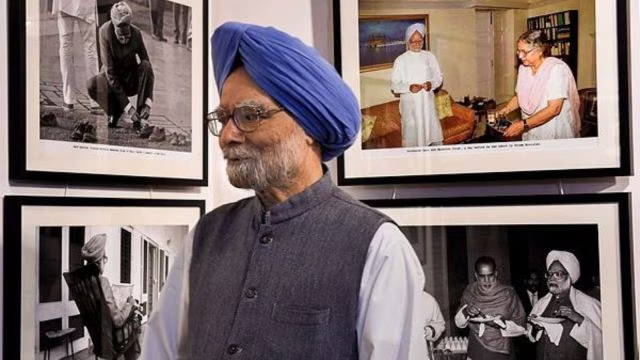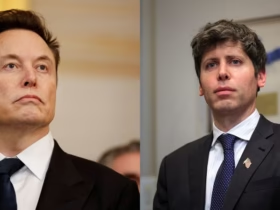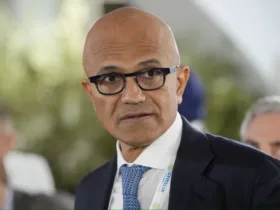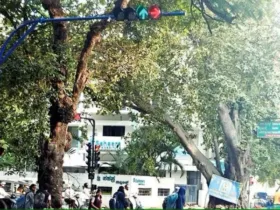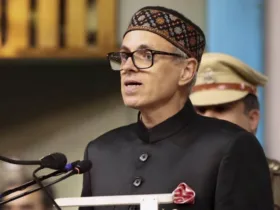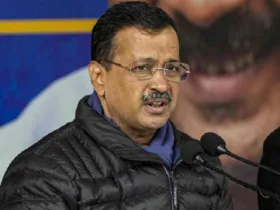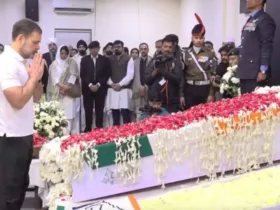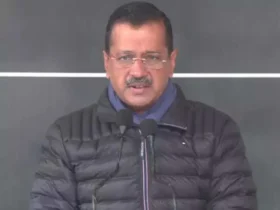Former Prime Minister of India, Dr. Manmohan Singh, a key architect of India’s economic liberalization and renowned economist, has passed away at the age of 92. His demise marks the end of an era in Indian politics and economic history. Dr. Singh served as the 13th Prime Minister of India from 2004 to 2014 and was instrumental in transforming the Indian economy during his tenure as Finance Minister in the early 1990s.
A Stalwart of Indian Politics and Economics
Dr. Manmohan Singh was widely respected for his intellect, integrity, and contributions to India’s growth. Born on September 26, 1932, in Gah (now in Pakistan), he pursued his education at institutions like Panjab University, Cambridge University, and the University of Oxford. His academic brilliance earned him a reputation as one of the most qualified leaders in Indian politics.
Architect of India’s Economic Liberalization
Dr. Singh’s most notable contribution came during his tenure as Finance Minister (1991–1996) under the leadership of then-Prime Minister P.V. Narasimha Rao. Facing a severe economic crisis, Singh introduced sweeping reforms that liberalized India’s economy. Key measures included:
- Devaluation of the Indian rupee.
- Opening up the economy to foreign investments.
- Deregulation of industries.
- Reduction in import tariffs.
These reforms are credited with steering India away from an economic collapse and laying the foundation for decades of robust economic growth. His famous statement during the 1991 budget speech, “No power on earth can stop an idea whose time has come,” remains etched in Indian economic history.
Prime Ministerial Tenure of Manmohan Singh
Dr. Manmohan Singh served as Prime Minister for two consecutive terms from 2004 to 2014. Leading a coalition government, he oversaw one of India’s most significant periods of economic expansion. Key achievements during his tenure include:
- Launch of the Mahatma Gandhi National Rural Employment Guarantee Act (MGNREGA).
- Introduction of the Right to Education Act.
- Spearheading the India-US Civil Nuclear Agreement.
- Expanding infrastructure projects and social welfare schemes.
Despite his significant contributions, his tenure was also marred by allegations of corruption in coalition politics, including the 2G spectrum and coal allocation scams, which tarnished the UPA government’s image.
A Man of Few Words but Deep Wisdom
Known for his reserved demeanor and scholarly approach, Dr. Singh was admired across party lines for his humility and dedication to public service. His economic acumen and ability to provide stability during crises earned him the nickname “Accidental Prime Minister” by some, though his legacy proved otherwise.
Condolences Pour In
Leaders across the political spectrum, economists, and global figures have expressed their grief over Dr. Singh’s passing. Prime Minister Narendra Modi described him as “a towering figure in Indian politics who guided the nation during challenging times.” Congress leader Sonia Gandhi highlighted his unwavering commitment to India’s development, and former US President Barack Obama, who shared a strong rapport with Dr. Singh, called him “a statesman with a vision for global cooperation.”
Legacy of Dr. Manmohan Singh
Dr. Singh’s legacy extends beyond politics. As an economist and policymaker, his reforms reshaped India into one of the fastest-growing economies in the world. His calm and composed leadership style during tumultuous times set a benchmark for future leaders.
Key aspects of his legacy include:
- Economic Reforms: Ushering India into an era of globalization.
- Social Schemes: Strengthening the social safety net for marginalized communities.
- Global Recognition: Elevating India’s stature on the global stage.
Final Farewell
Dr. Manmohan Singh’s passing leaves a void in Indian politics and economic policymaking. As the nation mourns, his contributions continue to inspire millions. Tributes from leaders, intellectuals, and citizens reflect the respect he commanded as a leader who prioritized the nation’s welfare over personal gains.
Conclusion
Dr. Manmohan Singh will be remembered as a leader who steered India through transformative periods with vision, wisdom, and integrity. His legacy as an economist and statesman will remain a cornerstone of India’s modern history.

